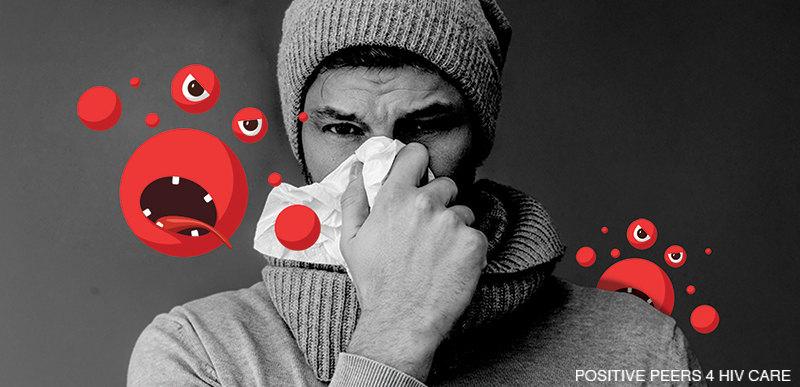
By: Ann K. Avery, MD, Infectious Disease Physician at MetroHealth Medical Center
Opportunistic infections are diseases that attack a weakened immune system. They are not welcome news because they really only happen during the final stage of HIV infection, AIDS.
If you have HIV, opportunistic infections are a key issue you need to aware of. Here’s why:
An immune system at full strength is constantly fighting off minor infections from bacteria, molds and viruses. These ailments should be a trivial annoyance your immune system can swat like flies.
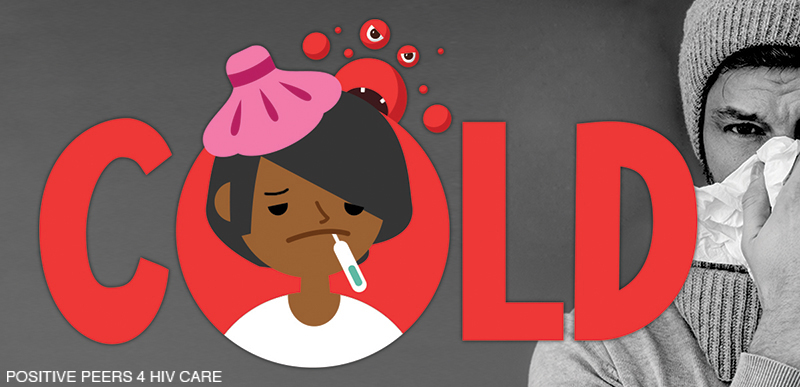
But if your immune system gets compromised by a disease like HIV, these minor bugs can become major beasts. In a weakened immune system, a microbe that gives most people a runny nose can become an opportunistic infection that causes a life-threatening case of pneumonia.
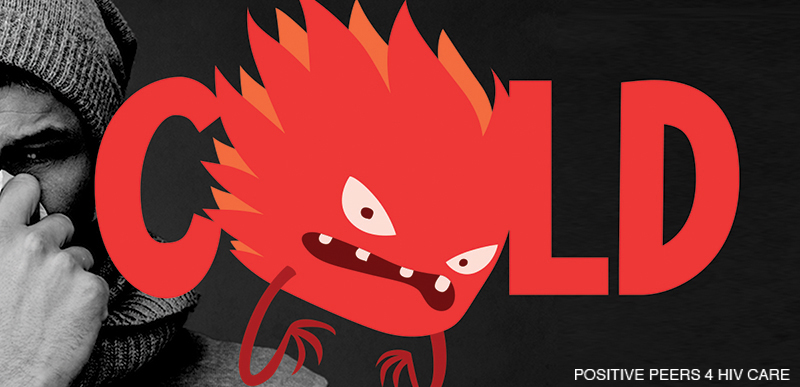
In the early days of the AIDS epidemic, there were no anti-retroviral medicines to fight HIV, so opportunistic infections ran rampant across entire communities. Those infections, in fact, were one of the reasons why there’s still so much fear and stigma over HIV and AIDS.
Fortunately, today we have HIV meds that can prevent the virus from spreading and can strengthen the immune system. This dramatically reduces the risk of opportunistic infections.
Come join our private, stigma-free, supportive community.
Health management tools with medication & appointment reminders.
Social networking in a community conversation & private chats.
How Today’s HIV Meds Defend Against Opportunistic Infections
Imagine the immune system as a very big football team, whose members cannot see or talk to each other, but are organized by a quarterback constantly sending each player a stream of invisible messages. In the human body, the role of the quarterback is filled by the CD4 cell, which dictates the behavior of the other immune cells almost from the moment of infection. These cells identify trespassers and relay the information to the immune system which creates antibodies that might be effective at warding off the attackers.
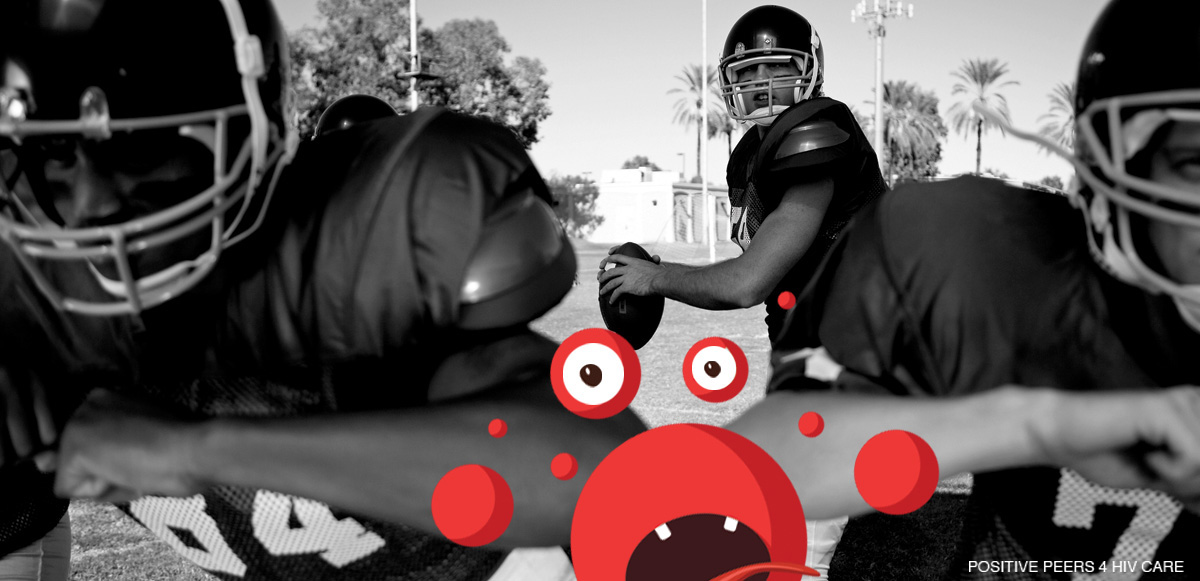
However, when HIV gets into the blood stream it blitzes and hijacks the CD4 cells. After invading CD4 cells, HIV takes over their function and creates tons of copies of itself that attack and destroy other CD4 cells. This can happen millions of times in an HIV infection — killing off critical CD4 cells that warn the immune system about diseases that are invading the body.

Thus, opportunistic infections take advantage of the fact that there aren’t enough CD4 cells to coordinate a healthy immune reaction.
Modern HIV meds prevent HIV from hijacking and killing CD4 cells. If the virus can’t take over a CD4 cell, it can’t copy itself and attack other CD4 cells. The meds keep your viral load suppressed so that your body can keep existing healthy CD4 cells and build new ones so your CD4 cell count rises up to healthy levels (over 600 is considered “normal”).
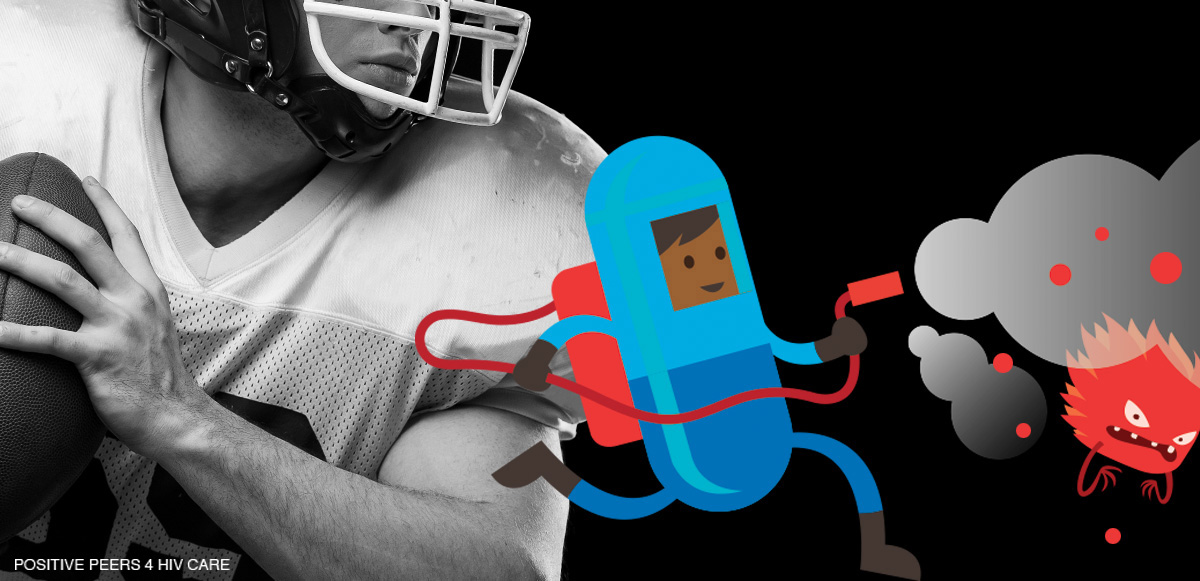
Opportunistic Infections and AIDS
Though modern HIV meds have reduced the fear of opportunistic infections, they are still a concern for a couple reasons:
- Some people don’t get tested for HIV until the disease has done enough damage to make the body vulnerable to opportunistic infections. They may have symptoms of opportunistic infections already, which means the disease has progressed to the AIDS phase.
- Not everybody responds to HIV meds the same way. It’s rare, but some people can still get opportunistic infections when they’re on HIV meds.
Links for HIV, opportunistic infections and their symptoms:
- The federal Centers for Disease Control and Prevention provides an excellent guide to the most common opportunistic infections, including their symptoms. Visit the CDC page now.
- AIDS.gov provides guidelines for CD4 counts that correspond with specific infections. Visit AIDS.gov now.
- Additional information about opportunistic infections can be found at aidsinfonet.org.
Positive Peers is made possible through a U.S. Department of Health and Human Services Health Resources and Services Administration, HIV/AIDS Bureau Special Projects of National Significance (SPNS) Grant to The MetroHealth System. Click here for more information about the SPNS grant initiative.
Positive Peers is a private app for young people living with HIV. Learn how you can earn rewards for your participation.
